Najbogatszy człowiek Świata Elon Musk może stracić I Miejsce w Rankingu na rzecz Aleksandra Łukaszenko.
Mathias Döpfner : Wolfgang Schäuble, mądry niemiecki polityk, powiedział: „Jeśli w naszej Ustawie Zasadniczej w ogóle istnieje wartość bezwzględna, to jest nią godność człowieka. Jest to nienaruszalne. Ale nie wyklucza to, że musimy umrzeć”.
Musk: Wszyscy umierają.
Döpfner: Wszyscy umierają. Ale godność jest czymś, co powinno być chronione. Nawet w czasach korony. Czy zmieniłeś swoje poglądy na temat wirusa podczas własnej infekcji ?
Musk: Nie, szczerze.
Döpfner: Jakie są Twoje prognozy, powiedzmy, na lato przyszłego roku. Czy szczepienie zadziała?
Musk: Będziemy mieć tyle szczepionek, że nie będziemy wiedzieć, co z nimi zrobić. Więcej szczepionek niż możemy użyć.
Döpfner: Ale z pozytywnym skutkiem ubocznym w leczeniu raka.
Musk: Jeśli powiesz, jakie są zalety produkcji szczepionek, to technologia szczepionek została turbodoładowana, to na pewno. Istnieje ogromne zainteresowanie przyspieszeniem szczepień. Szczególnie szczepionki mRNA są bardzo interesujące, ponieważ mogą być potencjalnym lekarstwem na raka. Myślę, że praca BioNTech, CureVac, Moderna - przyszłością medycyny jest mRNA. Za pomocą mRNA można wyleczyć praktycznie wszystko. To jest jak program komputerowy, w zasadzie syntetyczny wirus. Możesz go zaprogramować, aby robił wszystko, co chcesz. Praktycznie można zamienić się w motyla.
https://www.youtube.com/watch?v=uue3auaL7Ro
Motylem jestem, czyli romans 40 latka 1976









21':00"



https://www.youtube.com/watch?v=KwfnyGbyzGg
W poszukiwaniu ludzkich genów wolnych od GMO Białoruś będzie jednym z nielicznych krajów gdzie genom ludzki pozostanie nienaruszony.
https://www.rp.pl/Bialorus/210109781-Lukaszenko-Koronawirus-to-kara-od-Boga-za-stosunek-ludzi-do-natury.html
Prezydent Białorusi Aleksander Łukaszenko powiedział, że ??koronawirus jest karą Bożą za stosunek ludzkości do środowiska. Wyraził się w ten sposób w czasie wtorkowej wizyty w przedsiębiorstwie „Horizont” w Mińsku.
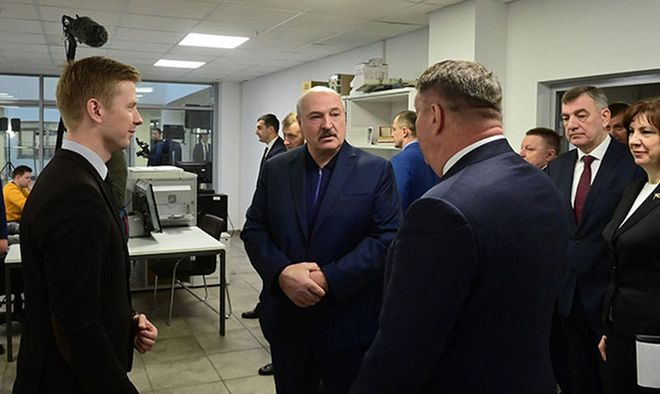
- W moim orędziu (noworocznym - red.) wspomniałem o samochodach elektrycznych, ale głównym przesłaniem było to, że Pan prawdopodobnie ukarał nas koronawirusem, za to, że traktujemy naturę po prostu w sposób ordynarny. Jeśli nie będziemy żyć w harmonii z naturą, nie będziemy zdrowi, a nasze dzieci będą biedne - mówił Łukaszenko na spotkaniu z pracownikami.
Prezydent Białorusi podkreślił, że choć wiele europejskich krajów decyduje się na wprowadzanie różnych ograniczeń dla samochodów z silnikami spalinowymi, jego kraj wciąż ma szansę wyrzucić takie auta z ulic wcześniej. - I zrobimy to - zapowiadał.
Łukaszenko zwrócił uwagę, że do spełnienia tego celu potrzebna będzie energia z Białoruskiej Elektrowni Atomowej (BelNPP). Obiekt w Ostrowcu, w obwodzie grodzieńskim, ma pozwolić też na „znaczne oszczędności przy zakupie importowanego gazu ziemnego”.
Pod koniec lipca zeszłego roku Łukaszenko powiedział, że przeszedł zakażenie Covid-19 bezobjawowo. Pod koniec grudnia zapowiedział, że nie zaszczepi się przeciwko tej chorobie.
https://www.businessinsider.com/elon-musk-interview-axel-springer-tesla-accelerate-advent-of-sustainable-energy?IR=T
Elon Musk reveals Tesla's plan to be at the forefront of a self-driving-car revolution — and why he wants to be buried on Mars
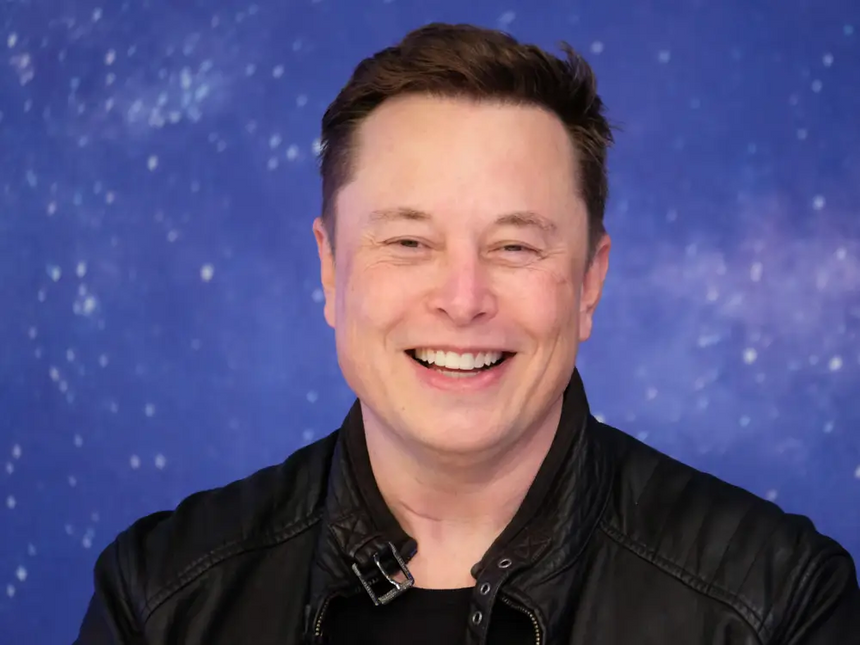
Elon Musk reveals Tesla's plan to be at the forefront of a self-driving-car revolution — and why he wants to be buried on Mars
Mathias Döpfner Dec 5, 2020, 6:51 PM
Elon Musk
Elon Musk. Axel Springer
TSLA Tesla
811.19 -68.83 (-7.82 %)
DisclaimerGet real-time TSLA charts here »
Mathias Döpfner, the CEO of Business Insider's parent company, Axel Springer, recently sat down with Tesla CEO Elon Musk to discuss why Musk's electric-car company would be at the forefront of the self-driving-car revolution as well as his ambitious plans to open up space exploration.
You can read a transcript below.
Mathias Döpfner: Wolfgang Schäuble, a wise German politician, said: "If there is an absolute value in our Basic Law at all, then it is the dignity of man. That is inviolable. But it does not exclude that we must die."
Musk: Everyone dies.
Döpfner: Everyone dies. But dignity is something that should be protected. Even in times of corona. Did you change any of your views with regard to the virus during your own infection?
Musk: No, honestly.
Döpfner: What is your outlook, let's say, for the summer of next year. Will the vaccination do its work?
Musk: We're going to have so many vaccines, we will not know what to do with them. More vaccines than we can possibly use.
Döpfner: But with a positive side effect on cancer medication.
Musk: If you say, what are the silver linings of vaccine production, then the vaccine technology got turbocharged, that's for sure. There is a massive interest in the acceleration of vaccines. The mRNA vaccines in particular are very interesting because they can be potential cures for cancer. I think the work of BioNTech, CureVac, Moderna — the future of medicine is mRNA. You can cure basically anything with mRNA. It is just like a computer program, basically a synthetic virus. You can program it to do anything you want. You could turn into a butterfly practically.
Döpfner: So, it will be a huge boost for the economy.
Musk: It's a lot of money that's flowing to them. We're also much better with testing. Testing technology has improved dramatically.
Döpfner: You were given a lifetime award as part of the Golden Steering Wheel in Berlin in 2014. I was sitting next to a very famous CEO of a very big German car company. When you were onstage, I asked him: "Aren't you worried by this guy? I mean, what he's doing is really serious." He said: "No, no, I don't worry. Absolutely not. He may have this crazy idea about battery cars, but that's not going to be a mass-market thing. And secondly, these guys just don't know how to build nice cars. They don't have the engineering expertise."
Musk: That's interesting. We needed to improve for sure.
Read more: Tesla's new 'tabless' battery design eliminates the power pack's 'weakest link,' a top researcher says — and could cut production costs by 50%
Döpfner: What do you think about this complacency?
Musk: Complacency is never wise.
Döpfner: He was absolutely serious. "This is never going to work." And now Tesla, which is worth $536 billion today, is 2 1/2 times bigger than VW, Daimler, and BMW together. Herbert Diess said, half-jokingly, Tesla actually could take over VW. Would that be attractive to you at all?
Musk: Our approach is probably going to be to execute independently. But we can either manufacture or license some of our technology to companies like BMW. We're trying to be as pure as possible here with respect to our goal, which is to accelerate the advent of sustainable energy. So, it's not about creating competitive walled gardens or anything like that. We're going to be making our Supercharger network available to other companies; we're going to offer licensing of Autopilot. They want to use our autonomy. And we can potentially do something with battery cells. And, you know, we're willing to license technology to help other companies do the right thing.
Döpfner: Traditional takeovers are not a strategy for Tesla?
Musk: Traditional takeovers are tough because companies have their own culture. Maybe if a company said to us, "Please, we're interested in merging with Tesla," that would be considered. But we wouldn't want to launch a hostile takeover. We would consider it ourselves if they approached us and said they're interested in merging companies.
Döpfner: Did you feel the complacency of the incumbents six years ago?
Musk: The incumbents were quite arrogant. Their words were not kind words.
Döpfner: Were they literally aggressive in a way?
Musk: Oh yeah.
Döpfner: Did it harm Tesla at all? Or did it help because it motivated you and your people?
Musk: We didn't take it too personally. But generally, when there's some new technology in an industry, that is how the incumbents react. It's natural. For us it was in the end a big motivation. At some point we did try to do some kind of joint ventures with Daimler and Toyota. However, we found that the enthusiasm of our partners was not big enough. So, we ended up winding down those partnerships and just stuck to building our own cars. I think that has changed a lot.
Döpfner: What changed exactly?
Musk: It's now clear that people want electric cars. They want sustainable transport. They want clean energy. This really tends to be somewhat of an age-related attitude. The younger somebody is, the more they care about the environment. And so, as time goes by, they grow older, and then they become the decision-makers. That's the normal way of the world.
Döpfner: How many units do you want to sell with Tesla in 10 years?
Musk: There are about 2 billion cars and trucks active in the world, and that number is increasing. Internally we think, we would like to be changing 1% of the fleet in the global fleet per year. To really make a dent, we have got to be past the decimal point. So that would be about 20 million vehicles a year.
Read more: Tesla could follow a historic 2020 with a monumental 2021 by raising money, rolling out more vehicles, and expanding into China
Döpfner: Which means that the current valuation is kind of justified. You made a comment and said it's too high. Why did you do that?
Musk: Actually, it was when it was much lower than it currently is. I said that when it was around $800 a share, and that was before the split. We had a five-point split. The stock market is a strange thing. It's like having a manic depressive who's constantly telling you how much your company's worth. And sometimes they have a good day, and sometimes they have a bad day, but the company is basically the same. The public markets are crazy. So, do I think there's a good chance that Tesla's worth this in the future? Yes, possibly more. But it really depends on the probability that people think we will actually get to 20 million vehicles a year. And then also solar and stationary battery storage are a very important part of Tesla's future.
Döpfner: Do your incumbents have a fair chance at playing a role in the kind of competitive ecosystem, or is it too late for them?
Musk: It's definitely not too late. We are seeing a significant movement towards electrification from VW. And a lot of the Chinese companies are very, very, very fast. I would guess the most competitive company for Tesla might be a company that was created in China. The market there is extremely competitive. They have some very good companies, and they work super hard. But at this point, all the major car companies, if not 80%, then 90%, have said they're moving quickly towards electrification.
Döpfner: So, you are bullish, remain bullish on electrification. Has anything changed with regard to self-driving? I remember, a couple of years ago, you were asked when do you think there will be permission for self-driving cars. And you said: "I don't care about the moment when self-driving will be permitted. I care about the moment when it will be forbidden for human beings to drive a car." And then somebody said, this is never going to happen, because nobody can imagine sitting in a car without steering it. And then you said, "Well, nobody could imagine a hundred years ago that an elevator would be possible without a lift boy. Today, you cannot imagine a lift with a lift boy." Do you still believe in that analogy?
Musk: I want to be clear. I'm definitely not trying to take anyone's steering wheel away from them. I'm just saying what will most likely occur, and I am certain about this, is that self-driving will become much safer than a human driver. Probably by a factor of 10. This means that the standard for allowing someone to drive their own car is probably going to become higher. Currently, getting a driver's license is relatively easy, because people need a car to get around. But often they crash their car, for various reasons, because they are drunk or distracted. Or there's a lot of texting while driving. So, the standard for being able to drive your own car in the future when autonomy is 10 times safer than human driving will become much more stringent. That's the most likely outcome.
Döpfner: And what is the time horizon — when will level-five autonomy happen? And do you believe that level four is ever going to be executed? Because then you have a combination of humans and machines, which can be more dangerous than machines only.
Musk: There is a dangerous transition point. Where self-driving is good, but it occasionally has issues, because people maybe get too comfortable, and then they stop paying attention like they should. And then 99.9% of the time, it's good, 1 in 1,000 times it's not. And you really need more like six nines, like a 99.9999 sort of reliability.
Döpfner: But any prediction about by when it will be the new normal?
Musk: I'm extremely confident that Tesla will have level five next year, extremely confident, 100%.
Döpfner: You will be able to provide that, but what about when it is going to be approved?
Musk: I don't control the timeline for approval.
Döpfner: But Tesla could do it next year in theory?
Musk: Absolutely. I drive the alpha build of the latest, fully self-driving software for Tesla, and many times I can go through a very complicated series of intersections and narrow roads, without ever touching any of the controls. All the way to work and back.
Döpfner: And approval, any prediction for that in the US, in Europe, in China?
Musk: In the US, it will be pretty quick to approve, particularly in certain states. Some countries, like perhaps Norway, will be very quick to approve. They've said that. The EU is where we actually have the most difficulty. It's quite challenging. And the committee only meets every six months, and then the agenda is decided six months before that. So, it's very difficult. Our biggest challenges for regulatory approval are in the EU. This is a case of too many cooks in the kitchen, maybe.
Döpfner: You're also making great progress with batteries, in terms of durability. There is one thing that you need for your product, and that is commodities. You mainly need lithium, you need copper, you need cobalt.
Musk: Actually, nickel is our biggest constraint.
Döpfner: These things are relatively scarce, they come from countries, most of which are not democratic. Some of these goods are mined using child labor and other terrible things. So, isn't this an issue that worries you? On the one hand you're thinking about finding a solution that will contribute to the well-being of the planet and the climate. But the side effect may be that totalitarian regimes are strengthened, or people have to work in terrible conditions.
Musk: We actually publish a sort of sustainability report. We insist, for all of our suppliers, that the materials are ethically sourced. And this is verified with the party organizations. So, I'm highly confident that no child labor is being used for any of our mining operations. If there is, and somebody can point that out, we will take immediate action. Besides that, cobalt is a very important economic resource for the Congo. People are really counting on this money.
Döpfner: Apart from the ethical question, are you not worried that this could just create a scarcity that could one day be a limiting factor, and you might simply not have enough of the material at some point?
Musk: I'm confident that, within the Earth's crust, there's plenty of material for electric vehicles. This is not going to be a fundamental constraint.
Döpfner: Grünheide, I was there this morning, and it's amazing. I remember November last year, when you announced the project at an Axel Springer event in this room. The construction got started in June this year, and in July next year it is going to be finished. Twelve thousand people in the first step, 40,000, potentially, if the whole compound is totally developed. I think your budget was 1.1 billion. Do you think you're going to finish it within budget? And in time?
Musk: Unfortunately, we will exceed the budget. This is the nature of things.
Döpfner: Just to compare: The little concert hall in Hamburg called the Elbphilharmonie was originally budgeted at 77 million, it was finished 10 years later for 866 million. Berlin's new airport was supposed to be finished in 2011 but has only just been opened. Its original budget was 1.7 billion, it finished at 7.3 billion.
Musk: Wow! Well, I sure hope that doesn't happen with us.
Döpfner: What you're doing here is a kind of standing provocation for prestigious real-estate-development projects in Germany — they tend to run out of budget, do not meet the original planned time frame. What is the secret behind your speed? Are you personally so involved?
Musk: I'm personally very involved. Right now, I'm spending more time on the Giga Berlin than any other thing at Tesla. And actually, I'm spending a lot of time on just working through the permits.
Döpfner: You still don't have a permit? You just started with a temporary permit.
Musk: Yeah, technically we have a temporary permit. So, it's a risk. But hopefully we will get the permanent permit soon. We have a good relationship with the permit office — they are working very hard. I do think that, at a high level, someone has to review the rules and regulations in Germany. Actually, it would be very important from a policy standpoint to have a rule-removal committee or some organization, some entity that reexamines the rules to say these no longer apply, these should be changed. Something like that would be really helpful for the whole country.
Döpfner: When you talk to politicians and regulators, do you have the impression that they're seriously considering that?
Musk: The regulators themselves are the ones pressing for the permits, and they're simply executing the rules that they have been given. So, it needs to be at a high level, I think at a political level. Some of these rules are like somebody made them maybe 20, 30, 40 years ago. Maybe they're still good, maybe they're not. And if no one's looking at them, then every year we just get more rules and regulations and laws. And eventually you won't be able to do anything.
Döpfner: You know it is a kind of European issue in particular, perhaps a German issue. Nevertheless, you decided to go to Germany and to build near Berlin. Was that also motivated a bit by this idea, I'm going to the country of the incumbents of the global automotive industry and go right where they are? Or was it purely driven by access to talent, the fact that it's a great and cheap place?
Musk: First of all, it was important for Tesla to have a significant production and engineering presence in Europe. So, you know, it doesn't make sense from an efficiency standpoint to build cars in California and ship them halfway around the world.
Döpfner: Purely for logistical reasons?
Musk: It's also not good for the environment to be transporting cars for such a long distance. So, for efficiency and environmental reasons, it makes sense to build the cars where the customers are reasonably close. And then obviously, we need one in Europe. You at least want to have a factory there, and I think it's also about engineering and design. And I guess I also had a personal preference for the Greater Berlin area, because Berlin's a lot of fun. And there's a lot of talent in Germany, for sure. A lot of my good friends are German. I like going to Berlin.
Döpfner: So hedonistic motives played a role?
Musk: I've got to go somewhere. And, obviously, Munich would be a good choice, but that's kind of BMW's home territory: Bavarian Motor Works, so that sounds OK. But we're up here, basically in Prussia, and I'm a big fan of history. And I like Frederick the Great, and he really was great and anyone who studies history knows he was great.
Döpfner: One hundred years ago, Berlin was the power hub of the creativity business and value creation. And nightlife. Do you want to re-create that?
Musk: Yeah, Berlin has the best night clubs.
Döpfner: We'll come back to that topic later. Could you imagine living here personally?
Musk: Well, I've set out to be a bit of a gypsy or something. I will definitely be spending quite a lot of time in Berlin, yeah.
Döpfner: Are you looking for places?
Musk: No, I'm not really buying any places. I stay at a hotel sometimes.
Döpfner: Where are you sleeping tonight?
Musk: I'm just going to be sleeping at the factory in one of the conference rooms.
Döpfner: You'll be sleeping in a conference room in the factory?
Musk: Yeah.
Döpfner: Alone?
Musk: That's my understanding, yeah. You've got to get a feel for the situation.
Döpfner: You said, in a recent quote, that possession just weighs you down. And that's why you want to get rid of your possessions. And that's why you have literally started to sell property. You have sold belongings. Is it more a metaphor or are you literally selling your belongings?
Musk: I sold my primary home.
Döpfner: The one in LA?
Musk: It was done two months ago. It was actually bought by a guy in China. And then I sold the house I own across the road, which used to be owned by Gene Wilder. It's very much his personality, and I sold it below market to his nephew who grew up there. And then we're in the process of selling my other houses. I guess I'll rent a place somewhere.
Döpfner: So why are you doing it? Because it's too much of an obligation, or it's limiting your freedom? You are considered to be the second-wealthiest person in the world. And now you are getting rid of your property.
Musk: In fact, I'll have basically almost no possessions with a monetary value, apart from the stock in the companies. So, if things are intense at work, I like just sleeping in the factory or the office. And I obviously need a place if my kids are there. So, I'll just rent a place or something. And a lot of the time it's just me, so I don't really need a big place.
Döpfner: So, no art collection, no cars, no real-estate property, no other stuff that we usually associate with wealthy people. Do you believe that getting rid of all that makes you a free man?
Musk: Yes, essentially, I think that also. Like the reason that I am accumulating wealth, if you will, which is really just stock in Tesla and SpaceX. The only publicly traded stock I own is Tesla. That's it. If Tesla and SpaceX go bankrupt, I will go bankrupt personally. One-hundred percent. But I also think, why should I try to have stock anyway. Why do I have all this stuff? Going back to what I was saying earlier, I think it is important for humanity to become a spacefaring civilization and a multiplanet species. And it's going to take a lot of resources to build a city on Mars. I want to be able to contribute as much as possible to the city on Mars. That means just a lot of capital.
Döpfner: And you want to focus on that?
Musk: Yes, and I'm also just trying to make clear that I'm serious about this. And it's not about personal consumption. Because people will attack me and say, oh, he's got all these possessions. He's got all these houses. OK, now I don't have them anymore.
Döpfner: There is one priority you said may also limit your freedom but nevertheless seems to be a top priority for you, and those are your kids. You have six.
Musk: For the moment that's correct.
Döpfner: Could you explain why kids are so incredibly valuable for you? And why you are defending or encouraging people wherever you can to give birth to kids?
Musk: Absolutely. My friends all say, oh, man, there it goes with the kids again, saying we should have kids and so on. But a lot of my friends have no kids. No, maybe they have one. And I'm like, man, how are we going to keep humanity going if you don't have kids? A lot of countries have a negative replacement rate. You can't just solve it with immigration — that's not possible. So, if you believe in humanity at all, you've got to say, we need to make sure we have humans in the future. They don't come from nowhere.
A lot of people would say they have the impression that the Earth is overpopulated. This is totally false. And they're just basing this on their immediate impressions because they live in a dense city. Have you gone to the countryside or looked down from an airplane? What percentage of the time, if you dropped a cannonball, would it drop on somebody? Basically zero percent.
Elon Musk and Mathias Döpfner
Musk with Mathias Döpfner. Axel Springer
Döpfner: A friend of mine, who had a very unhappy childhood, came to the conclusion not to give birth to any kids. Your childhood was also not the happiest one. Nevertheless, you are drawing the opposite conclusion, wanting to have as many kids as possible.
Musk: I'm not sure it's as many as possible — I can technically have a lot more. But yeah, I like kids. I'm trying to set a good example.
Döpfner: Is it true that you were bullied at school?
Musk: I had a very unhappy childhood. There were many years when I was very sad.
Döpfner: What was the reason?
Musk: It was hell at school and hell at home.
Döpfner: In school, because your peers realized that you are a different breed, and therefore bullied you, or how do you explain that?
Musk: It's important to know that South Africa is a very, very violent place. Violence is normal. And it's not unusual, so I'm not talking about just words.
Döpfner: Physical violence?
Musk: I was almost beaten to death at one point. So, it was a close call. I was in hospital for a while. So anyway, this is not a rare story, frankly.
Döpfner: Do you think that motivated you to play a pivotal role in improving the world? Was it in a way, like the kind of traumas we experience in our childhood are very often the motivators for excellence and achievements in our lives?
Musk: I was a pretty motivated kid. Even when I was very young, so I think it could have increased my motivation. But the thing that helped the most was that I just read a lot of books. Like every book I could get my hands on, especially sci-fi fantasy. I played Dungeons and Dragons as a kid, was very nerdy and read the "Monster Manual" backwards and forwards. But I think, if you had a difficult childhood, you can take two approaches to it. One is like, I'm going to get back on the world and be mean to people like they were mean to me, which is obviously not good. I took the other approach.
Döpfner: What do you think was the pivotal moment or reason? Was it a certain source of love that you nevertheless felt? Do you have any explanation for that?
Musk: Because I read a lot of books.
Döpfner: So what writers were the most important for you?
Musk: I got a bit depressed actually reading Nietzsche. And Schopenhauer. Really not recommended for a 13-year-old.
Döpfner: Apart from that only very few will understand their books.
Musk: They could be a little more upbeat. But then I read "The Hitchhiker's Guide to the Galaxy," which is really a book of philosophy that just seems like a silly comedy. And "The Hitchhiker's Guide to the Galaxy" sort of made the point that the universe has the answer. And that the difficult part, is asking questions.
What are the right questions to ask about the universe? And the conclusion I came to is that the more we can expand the scope and scale of consciousness, so that we're better able to ask questions about the answer, that is the universe. This is the right thing to do, I think. This is the thing to help understand what the hell is it all about. Why are we here? I mean, just step back for a second, what's the meaning of life? And that's not even the right question to ask. It's like, how did we get here? Where's it going? You know, all these things. So, we want to increase the scope and scale of consciousness so that we can try to figure out how to answer these questions, and what questions to ask.
Döpfner: I remember when we were sitting together in Potsdam, at a very late stage of an evening, and I asked you about the meaning of life. And after a couple of seconds, you said: probably this wonderful French cheese.
Musk: Exactly.
Döpfner: Can you explain that?
Musk: You need to feel life. The sensory experience of life, you can't get too caught up in the cold calculus of the cortex. You need to feel it in the limbic system, ask yourself, what does your heart say? And then take a moment to appreciate the many good things in life.
Döpfner: You said a sentence that sounds very simple, but at the same time, incredibly beautiful. You said, "Without laughter, I cannot be happy." Can you describe that?
Musk: Sure. What is laughter? This is a sign of a civilization going in the right way.
Döpfner: The Catholics forbade laughter in the church.
Musk: Did they seriously? Well, that's no fun at all.
Döpfner: You can detect dictators and totalitarian, authoritarian people by their lack of a sense of humor.
Musk: Napoleon had a good sense of humor.
Döpfner: I'm not sure he was the nicest person in all respects.
Musk: You know, nobody's perfect. Honestly, if you wanted to know someone, Napoleon would be a great guy.
Döpfner: You once said that for you it's a terrible idea to imagine yourself lonely in a house. So, do you have a hard time being lonely?
Musk: Very few people like being alone.
Döpfner: I cannot be alone, but I know many people who would love to be alone. Or at least pretend they do.
Musk: Humans are naturally a very social creature. And maybe what is defined as alone is not necessarily alone. I mean, if you're really alone and maybe just have books, not even communication, I think that's what drives most people crazy. I mean, there's a reason why in prison, solitary confinement is considered a big punishment. You want to have friends and family and someone — you ideally want to be surrounded by people you love and who love you.
Döpfner: When we spoke last time about the big projects that you have, from Space X to Neuralink, to The Boring Company, to Tesla. I asked you, among all the projects, which is the most relevant for you. And you surprised me in a way, and then didn't surprise me with your answer. The biggest priority for me is AI, you said. Why?
Musk: We need to be careful with the advent of AI. And who's using it, and who controls it, and is it going to be in the best interest of the people?
Döpfner: The big question is, is AI serving the people? In the long run, will machines serve mankind? Or will mankind serve machines?
Musk: Well, sometimes when I look at everyone on their phone all the time, I wonder, who is the master of who?
Döpfner: You ask yourself that today? The German publisher Johannes Gross said 25 years ago: You have a cellphone? You can be reached at any time? So you belong to the serving people.
Musk: Yes, people are constantly responding to things on their phone. They feel like they own the phone, but perhaps they should ask themselves whether the phone owns them. So, with every interaction we have, we're effectively training the sort of digital group mind. And I think it's perhaps less a question of whether AI is serving humanity or vice versa. Rather, there is a symbiosis. And hopefully, that symbiosis is one that mutually benefits digital and biological intelligence.
Döpfner: When do you think the moment of singularity will be reached? This Ray Kurzweil idea, the moment when things will turn around?
Musk: It's not far off.
Döpfner: Then it is very much a question of AI governance. Is it in the hands of very few superpowerful players? And potentially one day in bad hands? Or is it in many hands? And is there lively competition? Is that the thing you're worried about?
Musk: It's important to have some kind of government oversight. And generally, we agree that there should be a regulatory authority, whenever there's something that is a risk to the public. There are the regulatory agencies for cars, or aircraft, or food, drugs, that kind of thing. And we all think, nobody wants to abolish the FAA — we want them to oversee the aircraft. We want someone checking and confirming the aircraft is safe, and that kind of thing. Same for cars. For food and pharmaceuticals. So, it seems that we should also have regulatory agencies with some kind of public oversight ensuring that the public good is being pursued with artificial intelligence.
Döpfner: Is it fair to say that a project like Neuralink was created in order to empower human brains? In their competition with artificial intelligence?
Musk: Yes! I said jokingly that the slogan of the company was, "If you can't beat them, join them." So realistically, in the long term, we will not be able to beat the intelligence of computers. But perhaps we can achieve a happy symbiosis. And along the way, we can also cure a lot of diseases that are due to brain damage, either congenital or through an accident, or age, or whatever the case may be. So, if somebody has a stroke, or has epilepsy, or seizures, or clinical depression, or something like that, these are all things that can be improved with a brain device.
Read more: The Apple Car news is irrelevant to Tesla because Apple most likely wants to sell off Project Titan
Döpfner: You went pretty far with a vision that one day and, in the not-too-distant future, language won't be necessary. Because in theory, it is possible to read thoughts, to read desires of the brain, and in a way, translate them or implement them into actions — which sounds great and can solve a lot of diseases and terrible things and has already helped people big-time. On the other hand, that somebody would be able to read my thoughts. I don't know whether that is a vision that I really find desirable.
Musk: No, there will still be privacy. It's not like they can just read your thoughts without your permission or anything. But what I do have to say is, the initial uses of Neuralink will for many years just be solving medical issues, serious brain or spinal issues. The first application we're looking at for Neuralink is to help people who are tetraplegics and quadriplegics and enable them to use their computer or phone easily just using their mind.
Döpfner: And the vision that language could disappear or could at least lose its relevance. I mean we are seeing it with all the translation machines, which are helping to solve that issue. What is your vision here? How far can that go? And how fast can it go?
Musk: Sometimes people get mixed up between what is possible in the long term and what is likely in the near term. The near-term applications for a brain machine interface are really just solving very fundamental brain injury, brain- or spinal-injury issues. That sounds like it's really pretty much an unequivocal good. Then, as the devices get more advanced, in the long term, you could do conceptual and consensual telepathy.
Döpfner: Would you agree that there are three priorities, one being that we need to empower human intelligence, the second priority is, we need good governance of plurality, we have to make sure that it's not in the hands of too few. And the third priority is, we need agile regulation?
Musk: Yes, absolutely.
Döpfner: What role will China then play, with those other priorities? China has a totally different understanding. Everything that helps the well-being of the Central State of China and the Communist Party is supported. Ethical limitations, democracy or freedom and human rights don't play a role. Regulation is a kind of tool to help to make progress more useful for China's superiority. Isn't that a structural advantage for China in this kind of arms race with regard to domination of artificial intelligence? How can the West win it?
Musk: First of all, my experience with the government of China is that they actually are very responsive to the people, in fact, possibly more responsive to the happiness of people than in the US. And when I meet with Chinese government officials, they're always very concerned about this. Are people going to be happy about a thing? Is this going to actually serve the benefit of the people? It seems ironic, but even though you have sort of a single-party system, they really actually seem to care a lot about the well-being of the people. In fact, they're maybe even more sensitive to public opinion than what I see in the US.
Döpfner: That's the first time where I would actually contradict you. China doesn't care about human rights. How could there ever be an equal and level playing field. Do you really see an opportunity for Western democracies to win? What is your scenario, let's say, concerning the role of AI in the hands of politicians and economies like China, America, the West, the East in 10 years?
Musk: Google and DeepMind, which is one company, are by far the leaders in AI, the ones making the most progress. So, I'm not aware of who would even be a close second, maybe open AI. So, China's putting a lot of effort into AI. And they may be making progress. But I've not seen progress that is close to Google and DeepMind.
Döpfner: Let's see. I think China will catch up at light speed. Is the new administration in America going to fundamentally change its policy towards China? Do you think that Biden will provide more continuity with regard to China policy than people expect at the moment?
Musk: I'm not sure what Biden's policies are regarding China. Some aspects of what President Trump did concerning his insisting on equity with regard to tariffs makes sense. I don't necessarily agree with all of the methods that he put forward, but with the concept of, we need to fight for low and symmetric tariffs. That's what we should really be doing worldwide.
Döpfner: Do you fear that, in the context of this whole AI governance and competition, democracy could be weakened, or do you think it can contribute towards improving democracy?
Musk: It has the potential to appear to improve democracy. We need to be a bit careful — democracy is not perfection.
Döpfner: No, only totalitarian regimes can provide perfection. Democracy is always imperfect.
Musk: Exactly. This is the nature of it, Churchill or somebody — Churchill has the greatest number of fake quotes attributed to him — said like, democracy is the worst of all the systems, except for the other ones.
Döpfner: Another wonderful sentence comes from Thomas Mann, in his novel "The Magic Mountain": "Time is a gift of God's given to men, so that he may use it, use it, engineer, in the service of human progress." It seems that that is the shortest description of your life mission.
Musk: I'm trying to use technology to maximize the probability that the future is good. And, at a foundational level, that means ensuring we have a future, which is why sustainable energy is so important for the future of Earth. And then becoming a spacefaring civilization and a multiplanet species is important for the future beyond Earth, to ensure, that in a worst-case situation, if there's a World War III or something like that, or global thermonuclear warfare, and maybe all civilization is destroyed on Earth, that at least it continues to exist somewhere else. And, the civilization on Mars that could end up being a stabilizing influence on Earth. But that, just fundamentally like the probability of consciousness as we know it, and life as we know it, lasting for a long time will be dramatically improved if we're a multiplanet species as a spacefaring civilization.
Döpfner: We'll get back to other planets later, if you allow. The word engineer is very important to you. Almost more important than entrepreneur or founder or CEO or whatever. You define yourself as an engineer.
Musk: I would say probably the main descriptive thing that I think is accurate.
Döpfner: Which is in the end a creative product.
Musk: Yeah, it's like developing new technology to solve problems. Science is great for science. Science is discovering things about the universe that already existed, and engineering is about creating things that never existed. I think to create something new that, as far as we know, never existed in the universe before. That's great.
Döpfner: That's the biggest opportunity in life. And it's a new hierarchy, which, you could say, is very much in contrast to the old model of maximizing wealth, maximizing power. This is really about creating things and solving problems, which also seems to me to be the spirit of Silicon Valley.
Musk: Yes, creating, problem-solving. You know, making life better and more interesting through technology, creating something that never existed in the universe.
Döpfner: Nevertheless, there is an interesting development. Some people are leaving Silicon Valley saying it's getting too conventional, it's driven by too much political bias. That there's too much ruthlessness in abusing people's data. Peter Thiel left the Valley — you know him well. Alex Karp is very critical, and he provoked people with the letter that he wrote on the IPO of Palantir, criticizing the Valley. Where are you in this debate?
Musk: You always have to be careful when things become like a professional sports team. If a team has been winning for too long, they get complacent, they get entitled. That's just how it goes. This is why you don't see the same team winning every championship all the time. It's hard and painful when people we know, when a team or group or location has been winning for too long, then it's inevitable that they start to get entitled. They start to take it for granted, and they can get complacent and a little bit full of themselves.
Döpfner: This certainly has happened to Silicon Valley. Reed Hastings said in his recent book that a company should never see itself like a family or define itself like a family. It should define itself like a sports team. That's why you also have to exchange people if they are not contributing best, whereas in a family, you are basically helping even the weakest members in order to survive. If you share that principle, is the Silicon Valley community becoming too much of a family rather than a sports team?
Musk: I don't think so. It doesn't feel like something is becoming like too much of a family. I've spent more than half my life in California. And where I'm spending most of my time now is actually in Texas. Because we've got the Giga Texas factory being built and the Starship program in South Texas. Except for Austin, I was just asking the team, where would you like to spend your time? Where are you willing to move to, because we have a critical mass of people who need to be willing to move to wherever we do a new Gigafactory. Or take our significant operation in the US. Austin was top of the list, so hence we ended up in Austin.
Döpfner: What is for you the most important invention by mankind?
Musk: Language. Sure, we've got to communicate.
Döpfner: The first step is language. That was the fundamental distinction between humans and animals or lower forms of existence. And then the second step was probably writing.
Musk: Writing was like having a hard drive, things could continue beyond the person. If you try to maintain everything with an oral history, it's very difficult.
Döpfner: Exactly, only writing made it transferable. I would say the third step is publishing because that was a big democratization of knowledge. And you could say the fourth-biggest is digitization, because it accelerated it, made it accessible and global.
Musk: Instant digital communication worldwide is really like humanity developing a nervous system. Whereas previously all communication was person-to-person, phone calls are still person-to-person, and mail was like a person carrying your letter to another person. And now with the internet we have instant access to all the world's knowledge.
Döpfner: I'm super happy and surprised that you gave that answer — language — because it is always my answer. That's because I have an erotic relationship to language and writing and that's in a way fundamental to my job. I would have thought that you would answer that question with: the wheel.
Musk: The wheel. Well, actually, the thing that really matters is two wheels with an axle — that's the big invention. In ancient times, we easily figured out that a round thing rolls easier than a triangle, but putting two round things together with an axle is not immediately intuitive.
Döpfner: You being one of the most analytical and creative brains, is there anything that you absolutely don't understand?
Musk: There are a lot of things that I don't have a great understanding of. I might have a good understanding of most technology. But I'm not sure I understand where humanity is collectively going. Are we going in a good direction? Or are we turning inward and just fighting amongst ourselves?
Döpfner: What is the biggest challenge laying ahead of us?
Musk: The biggest thing is that we are getting to a stage where perhaps our reach extends our grasp. We have all this super-advanced technology, but can we really handle it? This will be the test. This will be a filter for more human civilization: Can we handle the technology and not destroy ourselves? With all these advanced technologies, is it like giving a toddler a shotgun? We've got to make sure we handle this technology in a way that's good for the future. We're going to make sure we have kids so that they as humans continue to exist. We have to think what sort of actions we must take so that the future is good.
Döpfner: When will we see the first human on Mars?
Musk: Most likely six years from now, possibly four years.
Döpfner: When will you go into space yourself?
Musk: Probably in two or three years.
Döpfner: Why do you want to be buried on Mars?
Musk: If you're going to be buried somewhere, it would be cool to be born on Earth and die on Mars — just not on impact.
Döpfner: Why is the SpaceX project so important for you? Is it the dream of a kid? Or is it a real kind of serious need for a plan B, because Earth could one day just not be the right place to be populated by human beings.
Musk: It's not that Mars is a plan B — it's that we want to become a multiplanet species and a spacefaring civilization. Ultimately, with life throughout the solar system, and then beyond our solar system to other star systems. That I think is a future that is very exciting and inspiring, compared to one where we stay on Earth forever, until some eventual extinction event.
I mean, eventually the sun's just going to get bigger and evaporate the oceans. And so, at some point, we better do something. And I think urgency is important for making life multiplanetary, because this is the first time in the 4-1/2-billion-year history of Earth that it has been possible. And this window of opportunity could be open for a long time, and hopefully it is. But it might also be open for only a short time. And it's not necessarily that civilization will end, but our technology level could subside. It could be that we don't end with a bang, but with a whimper. And so, while it's still possible, I think we should take action. But Mars, to be clear, is not going to be some luxurious resort.
Döpfner: It's a symbol for other areas where mankind can prosper.
Musk: Mars is a real planet, so we can create a real civilization there. But in the beginning, it's a bit like Shackleton's ad for the Antarctic where he said, it's dangerous, you might die, it's going to be uncomfortable, it's going to be a long journey. Food probably won't be good. There's also this terrible terror, but it's going to be a great adventure, and be one of the most exciting things that ever happened, if you don't die. That would be my ad for Mars.
Döpfner: What are the biggest issues that need to be resolved to make Mars a livable place?
Musk: In the beginning, it's going to be very difficult because Mars does not have an oxygen atmosphere — it's got a carbon-dioxide atmosphere. You can, over time, convert carbon dioxide to oxygen. That's what happened with Earth. Earth instead of having oxygen, had CO2. The oxygen was mostly CO2, still a lot of nitrogen, and Mars has some nitrogen. So over time, we could go through this process that Earth went through with the CO2 and oxygen, with plants, and liquid oceans. I think it really needs to be warmed up. And in the beginning, we'll just be OK — we've got to create a little base, we've got to have the basics. We have to be able to grow food, and we'll need water. We've got to replenish the propellant for the rockets, because we need to send the rockets back so they can bring more people. Or those that perhaps don't want to stay on Mars have the option of returning to or visiting Earth. So, it's really about the need to get a lot of solar panels, propellant generation, food, all the basics.
Döpfner: What was the most fulfilling moment in your professional life? And in your life in general?
Musk: Certainly the birth of the kids was extremely profound. And from a company standpoint, getting to orbit for the first time was very difficult. Yeah, very emotional. We had three failures before that. You know, I'm the chief engineer of SpaceX. So, it's really primarily my fault that we did not get to orbit. Could have done a better job. But fortunately the fourth one worked. And that's all we had money for at the time actually. Yeah, there was much that didn't work. We would have been bankrupt for sure. So, I was so stressed out, and that actually didn't feel like joy. I just felt a sense of relief.
Döpfner: Do you believe in God?
Musk: When I was a kid, oddly, my father was like, Anglican, Church of England. I was sent to Anglican Sunday school, but then his partners in his engineering firm were Jewish, so I was sent to the Jewish preschool. It was also nearby, and it was a good school. So I'm singing "Hava Nagila" one day, Jesus the next day, and as a kid you're like, well I guess I will just sing along, you know. But I would say, from what I see, after reading all the religious documents. I do agree with some of the principles, like turn the other cheek. Basically, forgive people instead of an eye for an eye is a good principle. And love thy neighbor as thyself, I think is a good principle. But do I think all these stories are literally accurate? That seems unlikely.
Döpfner: Why is music so important for you? You're a lover of techno music.
Musk: I am, actually. I've liked techno music for a long time.
Döpfner: That's why you go to Berlin?
Musk: Simply one of the reasons. We have to have this great rave for the opening of Giga Berlin. Well, actually, we're going to start in the afternoon with sort of family music and everything, invite all the people that live in the region, have a vague sort of picnic, and then gradually get more hardcore as the night goes on. And then have a crazy rave till dawn, it's culturally necessary.
Döpfner: Your recent track, "Don't Doubt Ur Vibe," seems to be your kind of personal anthem.
Musk: To be frank, I made that with some friends as kind of a joke. And, you know, I definitely credit my friend Mike who was helping with that song. It was meant to be just for fun.
Döpfner: For fun and encouragement of people. So, who are your favorite DJs?
Musk: Well, I have quite a lot. Let's see. You know, like, Boris Brejcha, he's pretty good. I feel like naming a few is always limiting.
Döpfner: Favorite clubs?
Musk: Berghain is pretty good. I haven't been in a long time.
Döpfner: It's closed. Should be reopened at the latest when the Gigafactory is launched.
Musk: Sure. Sounds good. Swedish House Mafia is great. We will invite a lot of musicians for opening day and just have a fun party that has something for everyone, from families with little kids to young people. And so, there's no reason why the company has to be sort of corporate and boring. It can be fun. We want to make it fun.
Döpfner: The bridge from Juan Atkins' beginnings in Detroit to the recreation of the Love Parade in Berlin. A frame for your opening?
Musk: Yeah, we're going to have a good time.
We hope you enjoyed reading this interview - if you want to read more of our exclusive journalism and have access to all subscriber benefits you can sign up HERE.
Signup Today: Free Chart of the Day Newsletter from Insider Intelligence
Disclosure: Axel Springer is Business Insider's parent company.
NEWSLETTER
A recap of all things electric vehicles, ride-hailing, airlines, and more. Sign up for Insider Transportation.
https://wyborcza.pl/7,75399,26595968,inzynier-elon-musk-sprzedaje-wszystko-i-lece-na-marsa.html
Kropelka tej wolnej od GMO "wody życia" będzia warta miliony dolarów.
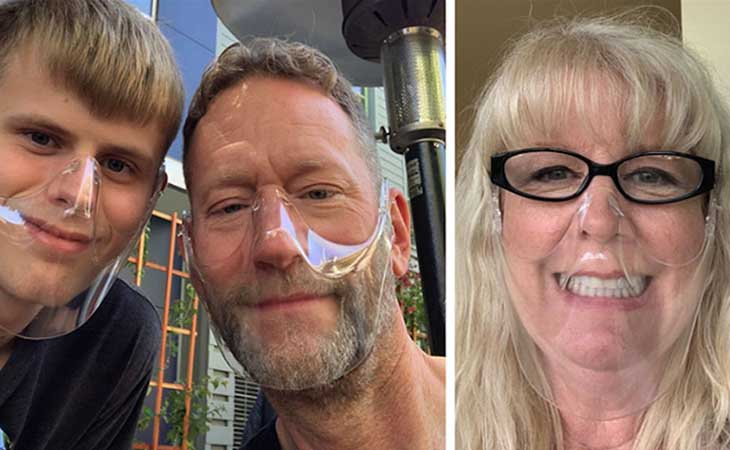
https://www.poradnikzdrowie.pl/seks/sztuka-kochania/sperma-sklad-wlasciwosci-i-wplyw-meskiego-nasienia-na-kobiete-aa-vzuM-twH5-ErzK.html
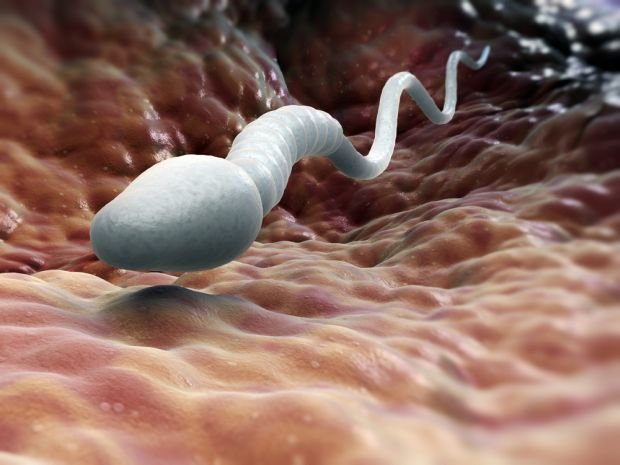
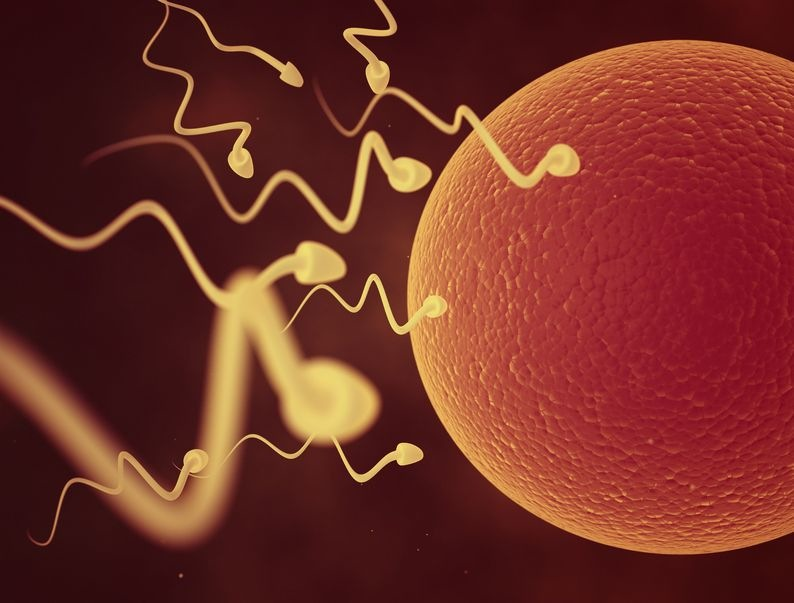
https://nt.interia.pl/technauka/news-sztuczna-sperma-z-komorek-macierzystych,nId,1731275
SZTUCZNA SPERMA Z KOMÓREK MACIERZYSTYCH
TECHNAUKA Wtorek, 12 maja 2015 (09:39)
Eksperci z francuskiej firmy Kallistem nauczyli się tworzyć ludzką spermę w laboratorium.
Czytaj więcej na https://nt.interia.pl/technauka/news-sztuczna-sperma-z-komorek-macierzystych,nId,1731275#utm_source=paste&utm_medium=paste&utm_campaign=chrome
Jak obiecali eksperci Kallistem, w 2017 roku na świat przyjdzie pierwsza osoba, stworzona z wykorzystaniem sztucznej spermy. /123RF/PICSEL
Męskie komórki płciowe naukowcy otrzymali od spermatogonii, czyli komórek macierzystych, które w procesie spermatogenezy dają początek plemnikom. Były one w drodze biopsji pobierane z jąder pacjentów. Jeśli technologia ta rozwinie się, to sztuczne plemniki mogą znaleźć stosowane w celach klinicznych. Może to oznaczać nadzieję dla 50 tys. pacjentów z niepłodnością rocznie.
Wcześniej podobny eksperyment przeprowadzono jedynie u myszy. Nowe leki muszą przejść na razie próby przedkliniczne. Jednak, jak obiecali eksperci Kallistem, w 2017 roku na świat przyjdzie pierwsza osoba, stworzona z wykorzystaniem sztucznej spermy z komórek macierzystych, pochodzących od niepłodnych mężczyzn.
Zmianynaziemi.pl
https://www.poradnikzdrowie.pl/seks/sztuka-kochania/sperma-sklad-wlasciwosci-i-wplyw-meskiego-nasienia-na-kobiete-aa-vzuM-twH5-ErzK.html
SPERMA – skład, właściwości i wpływ męskiego nasienia na ...www.poradnikzdrowie.pl › seks › sztuka-kochania › sp...
6 wrz 2018 — Sprawdź, jaki skład ma męskie nasienie oraz jak sperma wpływa na wygląd i zdrowie kobiety. Sperma - jej skład oraz właściwości są od lat ...
Co to jest sperma? · Skład spermy · Smak spermy
Sperma czym jest i jakie ma właściwości? - Transplantacja.org ...transplantacja.org.pl › Zdrowie
21 paź 2019 — Sperma i jej zaskakujące właściwości. Czy spodziewaliście się spermy w kosmetykach? Ulubionym kremie? Męskie nasienie w ostatnim ...
Czym jest sperma ? · Prawidłowe parametry spermy
https://kobietamag.pl/5-wlasciwosci-zdrowotnych-spermy-ktore-cie-zaszokuja/
5 właściwości zdrowotnych ... spermy, które Cię zaszokują ...kobietamag.pl › Związek
2 sie 2020 — Wbrew powszechnym przekonaniom sperma to nie tylko plemniki niezbędne do poczęcia potomka! Wprawdzie właściwości męskiego nasienia ...
Redakcja, 2 sierpnia 2020
5 właściwości zdrowotnych … spermy, które Cię zaszokują
Wbrew powszechnym przekonaniom sperma to nie tylko plemniki niezbędne do poczęcia potomka! Wprawdzie właściwości męskiego nasienia to niekoniecznie najlepszy temat na następne rodzinne spotkanie, to jednak warto wiedzieć, jakie korzyści – o których prawdopodobnie nie wiedziałyście – niesie ze sobą męska sperma.
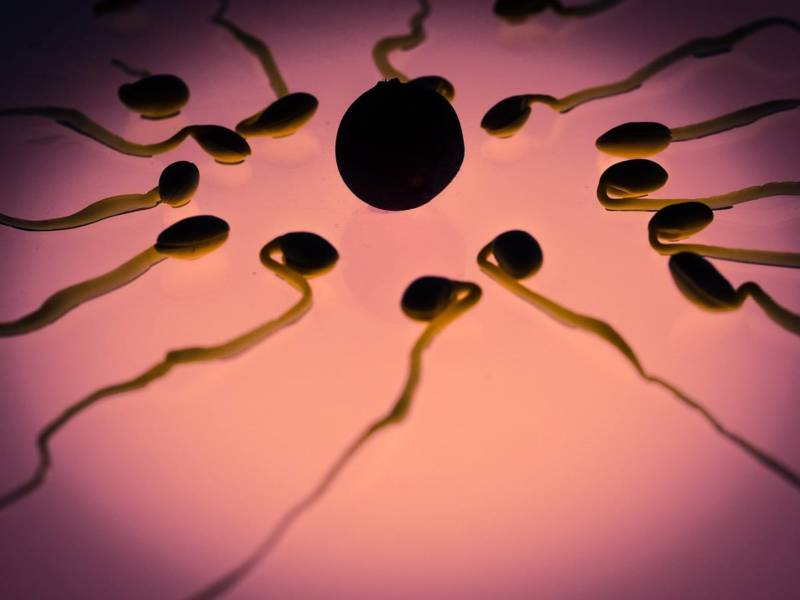
sperma
Powszechnie wiadomo, że seks sam z siebie czyni cuda – tak dla ciała, jak i duszy. Nawet może pomóc żyć dłużej, jeśli uprawiamy go intensywnie po 50-tym roku życia. Z seksem jest związany także temat męskiego nasienia, które jest od dłuższego czasu badane pod wieloma kątami. Wyniki badań są naprawdę zaskakujące.
Jak będziecie traktować męskie nasienie w sypialni – w aspekcie poniższych wyników badań – pozostawiamy już Waszej decyzji. Ale warto znać tych 5 punktów
1. Nasienie jest naturalnym antydepresantem
Wiemy, że udany seks wywołuje uśmiech zadowolenia na twarzach, ale nigdy nie pomyślałyście, że ma to coś wspólnego z nasieniem. Według badań przeprowadzonych na 293 studentkach na Uniwersytecie Stanu Nowy Jork (badanie dr Gordona Gallupa) kontakt z nasieniem może zmniejszyć objawy depresji. W badaniu porównano studentki, które uprawiały seks z prezerwatywą do tych, które uprawiały seks bez zabezpieczenia. Efektem tych badań było stwierdzenie, że ta ostatnia grupa wykazywała mniej objawów depresji. Dlaczego?
Jest to powiązane z składem nasienia. Zawiera ono bowiem hormony – głównie testosteron oraz estrogeny, hormon luteinizujący, hormon folikulotropowy, prolaktynę i inne. Hormony są zdolne przenikać z pochwy wprost do krwi kobiety.
Testosteron, estron, oksytocyna, tyreotropina zawarte w spermie mają działanie podnoszące nastrój, poprawiające samopoczucie, podwyższające kobiece libido. W efekcie kontaktu ze spermą wzrasta u kobiety chęć do życia. Jeśli jednak tych związków jest za mało u kobiety, może to doprowadzić m.in do obniżenia poczucia wartości, co w konsekwencji wywołać może depresję.
Warto tu podkreślić, że ten wpływ wywołują stosunki osób pozostających w stałych, długoletnich związkach.
Najważniejsze wnioski z tego badania opublikowane zostały w czasopiśmie „Archives of Sexual Behavior”.
Najlepsze teksty na podryw – najbardziej skuteczne i najgorsze, których unikaj!
2. Nasienie pomaga lepiej spać
Zwykle po seksie lepiej śpimy. Dzieje się tak, ponieważ sperma zawiera m.in. melatoninę – substancję chemiczną, która wywołuje sen i relaks. Niezależnie od tego, czy spożywamy ją – czy otrzymamy podczas stosunku, gdy dostanie się ona do krwi – pomaga zasnąć lepiej niż większość środków nasennych.

śpiąca kobieta
3. Naturalna multiwitamina w każdym wytrysku
Plemniki stanowią zaledwie 1 proc. męskiej spermy. A co z pozostałymi 99.% ? Jedna łyżeczka nasienia zawiera ponadto 200 białek i kilka przydatnych witamin i minerałów, w tym witaminę C, wapń, chlor, kwas cytrynowy, kwas mlekowy, fruktozy, magnez, azot, fosfor, potas, sód, witaminy B12 i cynk. Podczas gdy wysokość każdej z ww. witamin zmienia się w zależności od wieku i stanu zdrowia mężczyzny, to zwykle znaczna ilość cynku – około 3 % – pozostaje bez zmian. Cynk zaś jest przeciwutleniaczem i pomaga spowolnić proces starzenia.
Wykorzystała to norweska firma Bioforskning, która wprowadziła na rynki maseczkę na twarz zawierająca sperminę – związek wyizolowany z ludzkiego nasienia. Związek ten jest wyprodukowany syntetycznie, ale jego skład chemiczny jest taki sam, jak naturalnej spermy. Maseczka reklamowana jest jako kosmetyk nawilżający skórę oraz opóźniający efekty starzenia.
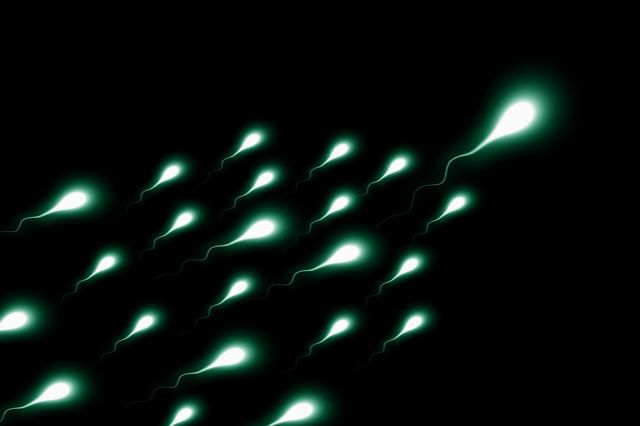
sperma
4. Seks oralny może obniżać ciśnienie krwi
Naukowcy z Danii wykazali na istniejący związek pomiędzy połykaniem spermy podczas seksu oralnego przez kobiety w ciąży a rzadszym występowanie nadciśnienia u ciężarnych (niższe ryzyko wystąpienia stanu przedrzucawkowego). Dlaczego?
Zdaniem naukowców związane jest to prawdopodobnie z istnieniem nietolerancji immunologicznej w niektórych przypadkach ciąży. Efektem nietolerancji immunologicznej może być m.in. nadciśnienie tętnicze. W spermie zaś znajdują się m.in. związek HLA (ang. human leukocyte antigen), który ma wpływ na tzw. zgodność tkankową. HLA dziedziczone jest po ojcu i po matce. Dostarczenie do organizmu ciężarnej matki spermy z HLA ojca powoduje zwiększenie tolerancji matki na antygeny wytwarzane przez płód. W efekcie system immunologiczny matki nie atakuje płodu, co w efekcie prowadzi do obniżenia ciśnienia krwi ciężarnej kobiety.
5. Sperma zmniejsza ryzyko wystąpienia raka prostaty
badanie krwi spermy
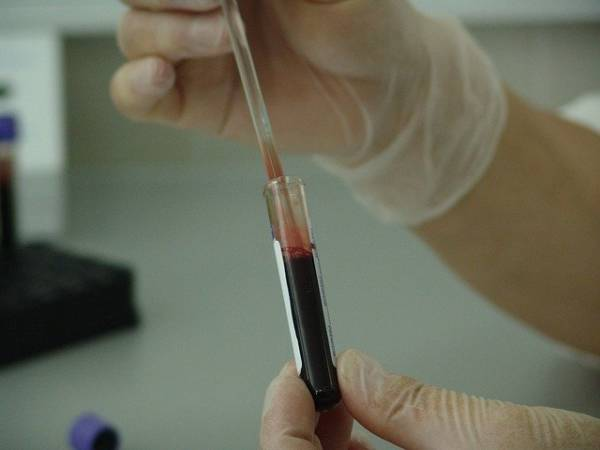
Nie tylko sperma, ale sam akt jej tworzenia przynosi wiele korzyści zdrowotnych partnerowi. „The Journal of American Medical Association” poinformował, że „wysoka częstotliwość wytrysku wiązała się ze zmniejszeniem ryzyka wystąpienia raka prostaty.” Oznacza to, że powodując regularny wytrysk u partnera dbasz o jego zdrowie i obniżasz szanse zachorowania przez niego na raka prostaty w późniejszych latach.
ŁUKASZENKO WG PROGNOSTYKI ELONA MUSKA NIE CHCE ZOSTAĆ JAK NASZ CZTERDZIESTOLATEK W KOLEJNYM POKOLENIU MOTYLEM.
ALE SIĘ inż. STEFAN KARWOWSKI (ANDRZEJ KOPICZYŃSKI) ZAWIERUSZYŁ I CO NA TO ANIA.
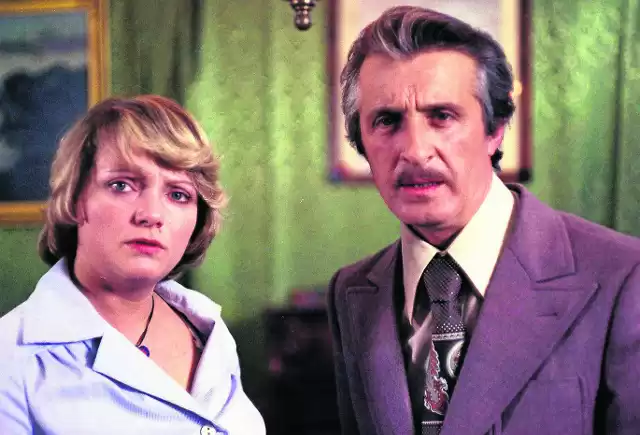
mALINIAK (Maliniak - Roman Kłosowski też nie chciał być motylem)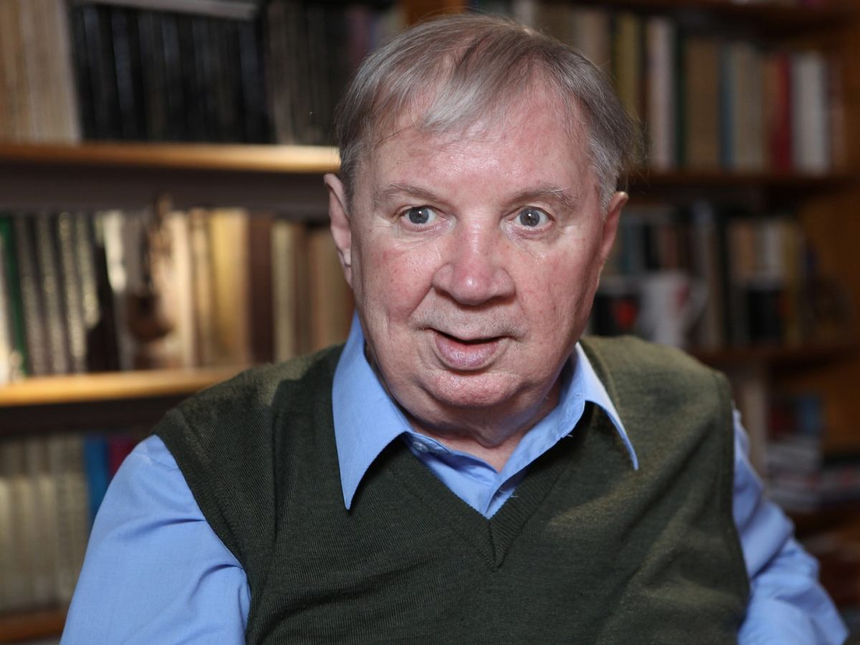
TEŻ NIE CHCE BYĆ MOTYLEM
Ani

Grażyna Lisiewska
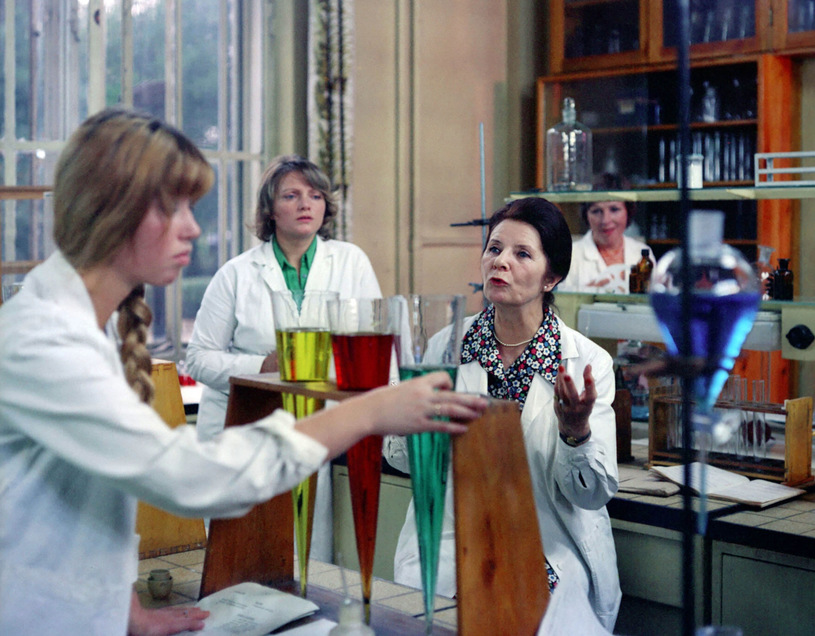
Serialowa laborantka Mariolka nie ukończyła szkoły aktorskiej, a do pojawienia się na planie produkcji TVP, tak naprawdę nie posiadała doświadczenia zawodowego.
Źródło: East News
Autor: INPLUS
Zakorzeniony w historii Polski i Kresów Wschodnich. Przyjaciel ludzi, zwierząt i przyrody. Wiara i miłość do Boga i Człowieka. Autorytet Jan Paweł II
Nowości od blogera
Inne tematy w dziale Społeczeństwo

